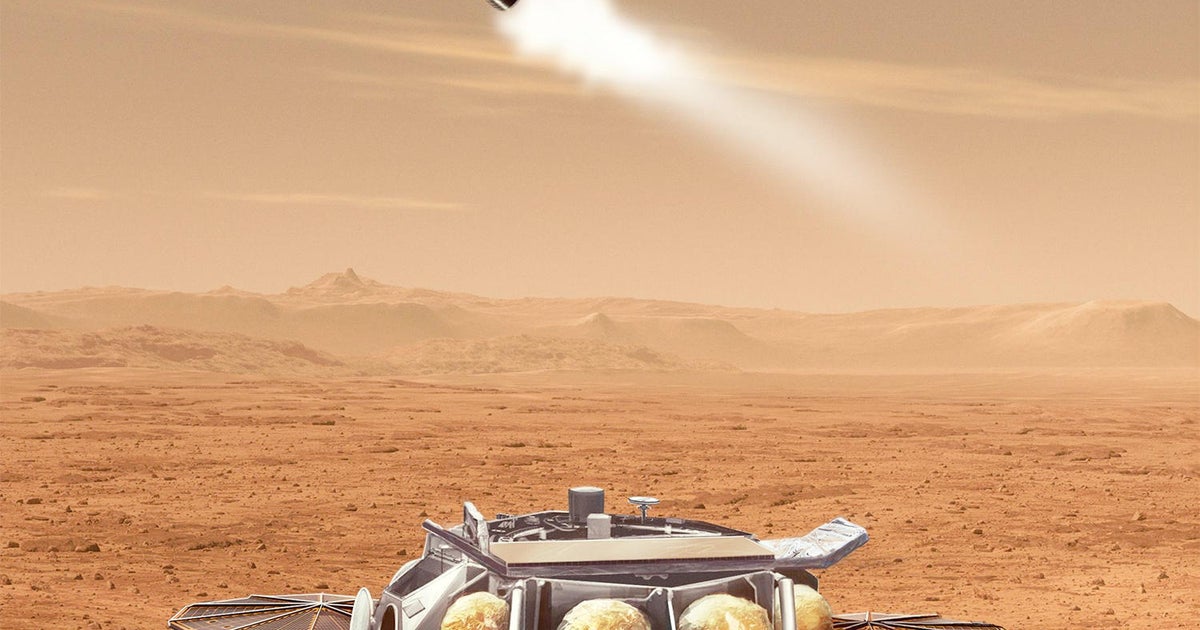
NASA exploring 2 options to lower costs, speed up Mars Sample Return mission
CBSN
After an independent review concluded NASA's plans to robotically collect and return rock and soil samples from Mars could cost up to $11 billion, NASA "pulled the plug" and is focusing on two options to reduce costs and speed up the return of the samples, agency Administrator Bill Nelson said Tuesday.
Option one would use the same "sky crane" landing system proven with NASA's Curiosity and Perseverance Mars rovers, a smaller sample collection spacecraft, a smaller rocket to boost the samples into orbit around the red planet and a European Space Agency spacecraft to capture them and fly them back to Earth.
The plan is similar to but less technologically challenging than the original architecture that was ruled out because of high costs and a sample return in the 2040 timeframe. Option one would cost between $6.6 billion and $7.7 billion and get the samples back as early as 2035 or as late as 2039, depending on congressional funding.

There have been 27 major disaster declarations issued by President Trump so far in 2025. The disasters range in size and scope, from the L.A. wildfires to Midwest tornadoes and the Texas flooding as well as several winter storms. Many of them have resulted infatalities and billions of dollars in damage to property and businesses, but one major deadly weather event that occurred in June hasn't been declared: an extreme heat wave.





















 Run 3 Space | Play Space Running Game
Run 3 Space | Play Space Running Game Traffic Jam 3D | Online Racing Game
Traffic Jam 3D | Online Racing Game Duck Hunt | Play Old Classic Game
Duck Hunt | Play Old Classic Game










